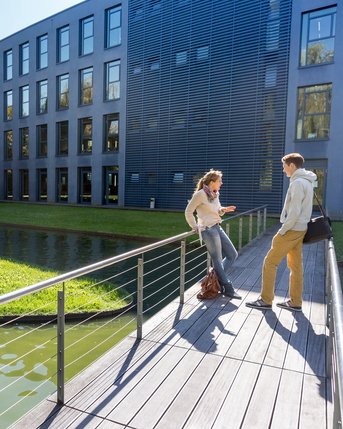

Study in Germany

Why is Germany the perfect study location?
In recent studies compiled by the OECD and study.eu Germany was deemed the no. 1 study destination for international students in Europe and the 3rd most attractive study destination among OECD countries.
But what makes Germany the perfect study location?
- High quality tertiary education system
- German university degrees are highly respected by employers around the world
- Large amount of study programmes in English
- Moderate living costs
- Shortage of skilled professionals and low unemployment rate for university graduates
- Graduates from German universities are eligible to apply for an 18-month residence permit that allows them to find a job in Germany after their graduation
- Safe country with low crime rates
Career & Visa
Germany’s economy is the strongest in Europe and the fourth strongest in the world. The country is the European leader in terms of growth, employment and exports. There are enormous employment and career opportunities for skilled professionals. Germany’s youth unemployment rate and the unemployment rate for university graduates are both very low.
What are my options after I finish my studies? After graduating with a Bachelor’s, Master's or MBA degree from a German university, students have several visa and residence options.


Job prospects
Germany has a shortage of skilled professionals in STEM and health-related occupations and an ageing population. Both factors increase the chances for young and skilled international university graduates to find suitable employment in Germany, start and continue their careers here.
The occupations that are mostly affected by skills' shortages include graduate positions in the field of supply and waste management, IT and software development/programming, STEM disciplines (science, technology, engineering, mathematics), mechanical and automotive engineering, electrical engineering and medicine.
Graduates from other disciplines and STEM graduates can always increase their career prospects by:
- Having a good command of the German language. We recommend that you enrol in German classes during your studies. Try to speak as much German as possible, e.g. with class or flatmates.
- Knowing the German labour market. Learn how a German CV and cover letter need to look like and what German employers are looking for. Things might work differently than in your home country.
- Getting professional experience through internships and student jobs. Graduates with more work experience enjoy better job opportunities. This way you can also expand your professional network.
Plan your studies in Germany

